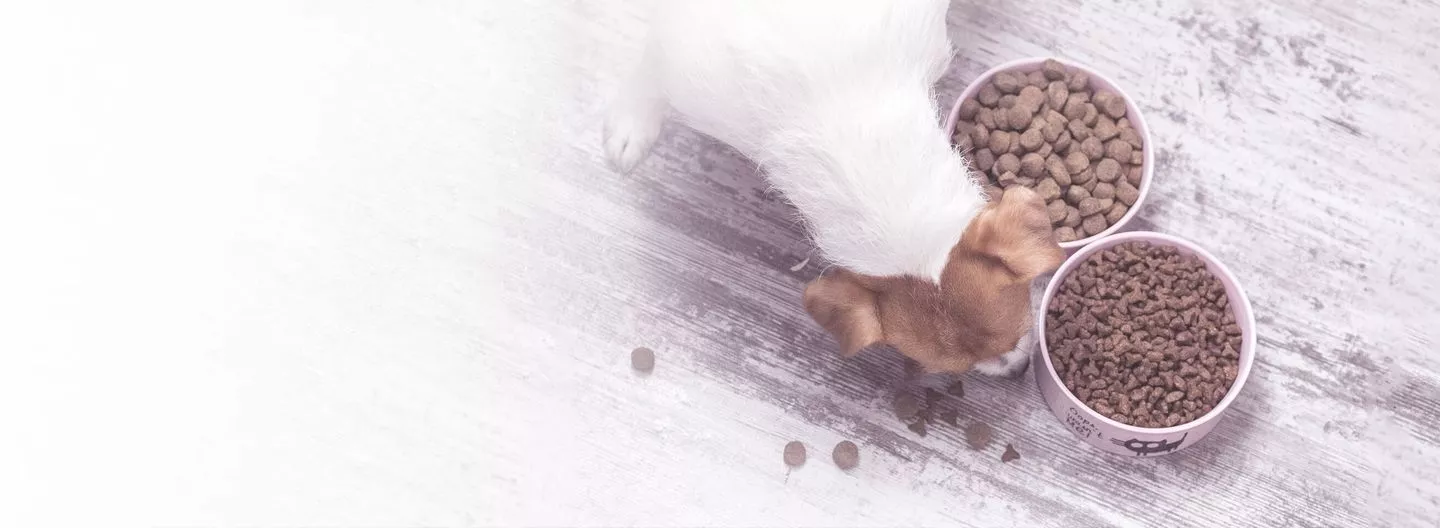


The dog's weight, breed and age affect the amount of food your dog needs. Individual factors such as activity and metabolism also play a crucial role. How to find the right amount of feed ...
If you want to know how much you can feed your dog, it is important to keep a few points in mind. Because not every dog ??needs the same amount of food. This depends on the dog's weight, breed and age. If your dog likes to move around a lot and has an active metabolism, then it may be that he needs a higher amount of food.
The amount of food can vary from dog to dog, because how much food your dog needs every day depends on the breed, its urge to move around and its metabolism. If you have a slim and very agile dog, the amount of food can be a little higher. However, if you can no longer feel his ribs when you stroke his chest with your hand or if your once agile and playful dog has become sluggish, then it can make sense to reduce the amount of food. But before you put him on a diet, a visit to the vet is useful to rule out any illness. The recommended amount of food and the number of meals on the package are guidelines that you can use as a guide, but you don't have to be rigid.Ideal weight for the age with normal movement. If you also feed your dog treats in between, then it is important to include them in the daily feeding so that he does not gain excess weight. For dogs with special needs, the food and thus perhaps also the amount of food that was once used to be adjusted again. The special needs arise, among other things, from the age of the dogs and from whether they are allergic to certain food components or whether they have to keep a diet. There are specific feeds for this.
Most adult dogs get along well with feeding once or twice a day. But you can also decide that individually. If you notice that your dog prefers to eat most of its daily food in the morning and a smaller portion in the evening, then you can split the portions accordingly. If your dog has already suffered from a stomach torsion, it is important to take this into account when feeding. In some larger breeds of dogs, this serious emergency is more common. Therefore, it is a good measure here to further divide the daily amount of feed. Feeding smaller portions three times a day has proven useful. But here, too, you can find out by observation what does your dog best.
Puppies are significantly more active than older animals and their bodies are in the process of being built up, so they have an increased energy requirement. For this reason, food designed for adult dogs is not suitable for very young dogs. In order to be able to find the energy for the existing curiosity and the play instinct, the puppy needs proportionally more calories, proteins and minerals. In the case of large dog breeds, the ratio between calcium and phosphorus must also be right for healthy and not too rapid bone formation. Puppies need to be fed more often than adult dogs. This is mainly because they have small stomachs that cannot take in as much food at once. Up to the age of four months, experts recommend four meals a day. After that, up to six months of age three, and twice daily feeding for dogs older than six months. More information about the rightFeeding puppies can be found in our puppy world .
If your dog has been neutered, he will go through a hormonal change that means that he needs less of the previously accustomed amount of food and energy. Therefore, to avoid your dog becoming overweight, it is very important to adjust the feeding. There is a special food for this, which is less substantial and supports weight control. While it's important to keep track of weight after neutering, it doesn't necessarily mean that you don't have to give your dog treats. Good, less substantial alternatives to conventional treats are, for example, apples or carrots.
Some dogs have less of the problem that they weigh too much, but rather the other way around. For some underweight dogs, giving more energetic food can help promote weight gain. However, the increased energy content of the food in dogs with a high urge to move can lead to them becoming even more active and not starting despite the more substantial food. It makes more sense here to feed a larger amount of the usual feed and supplement it with fat in the form of sunflower or safflower oil.